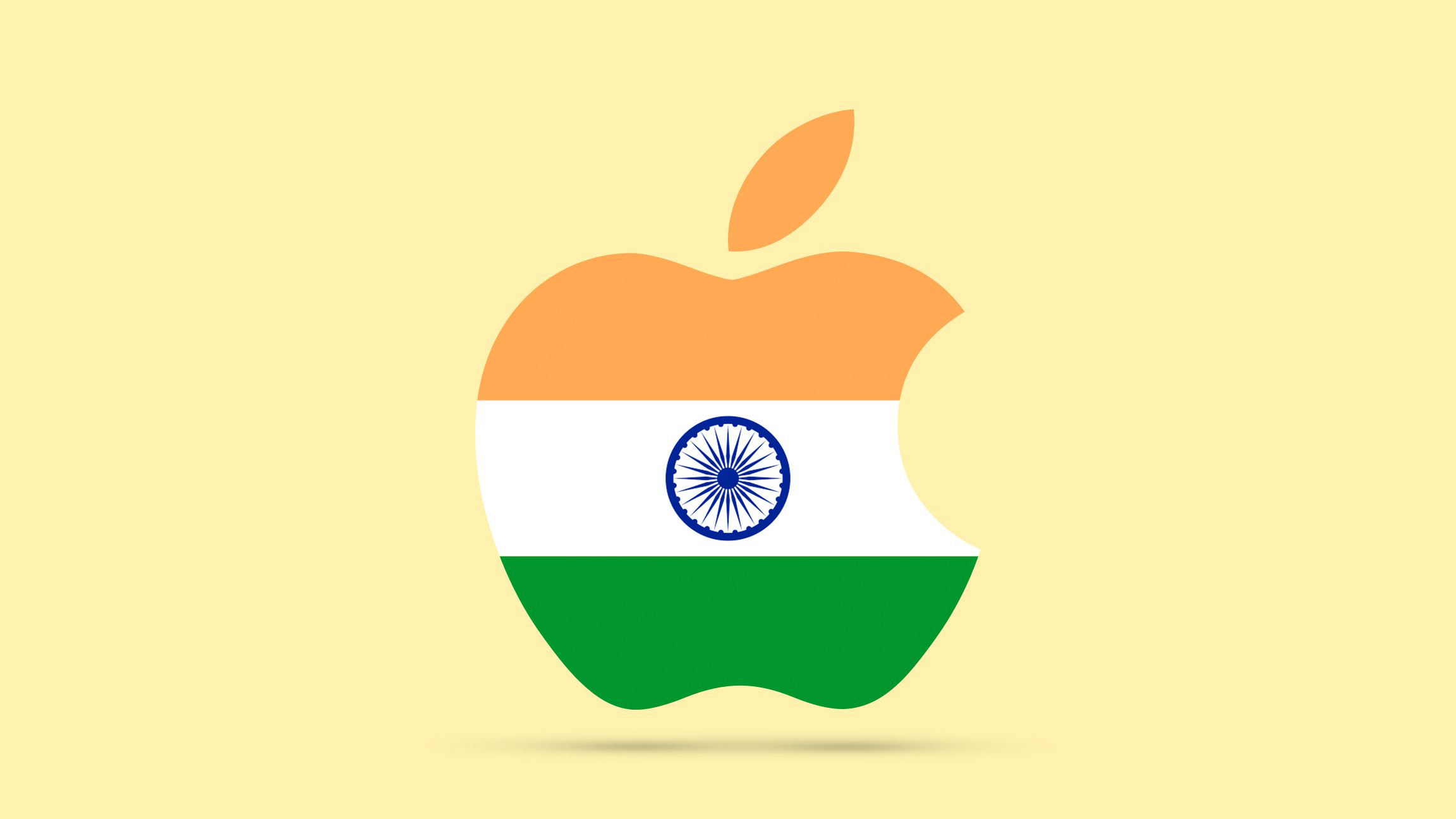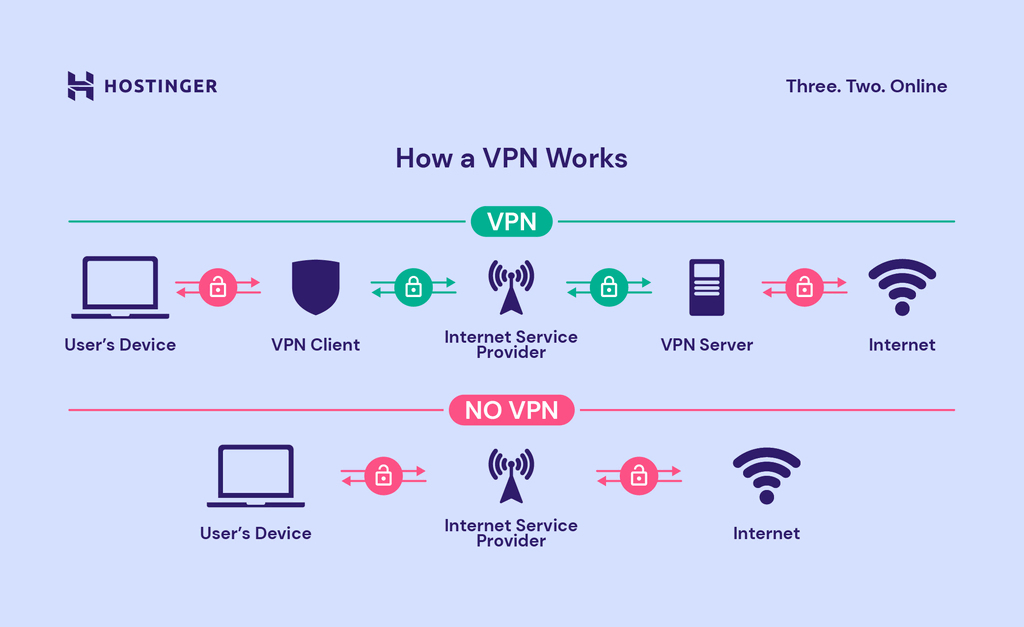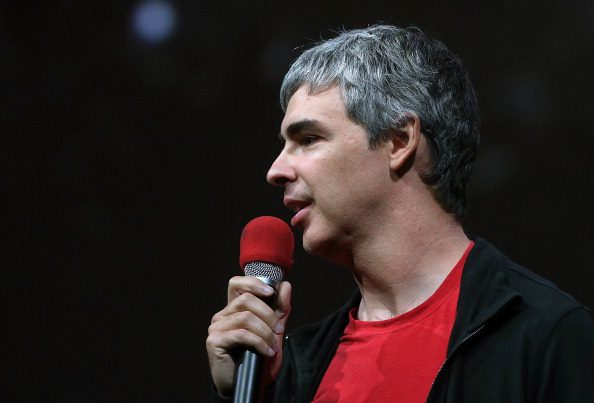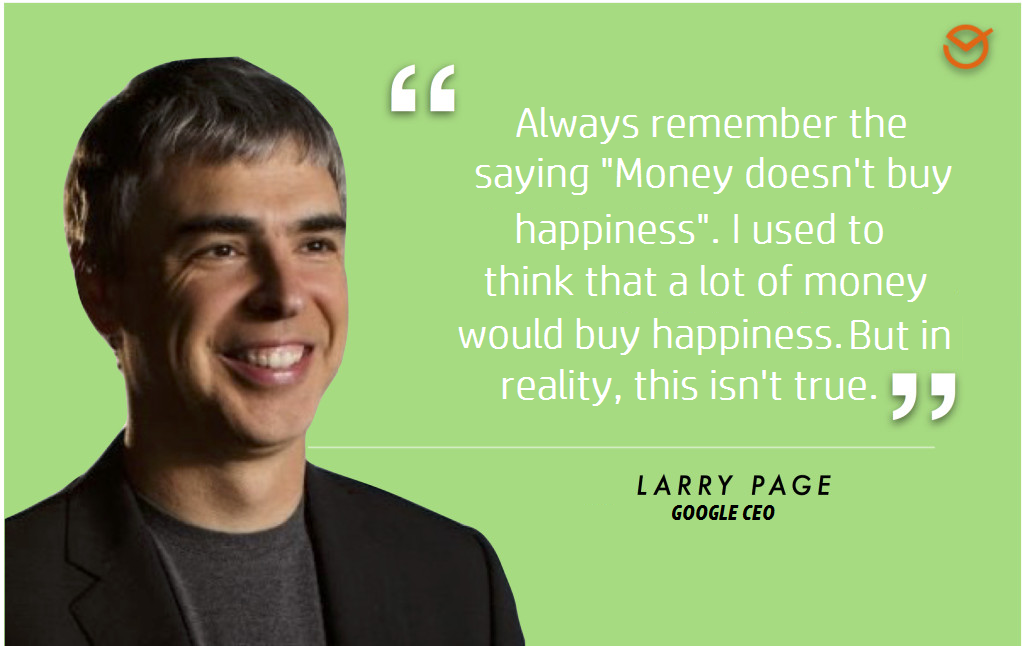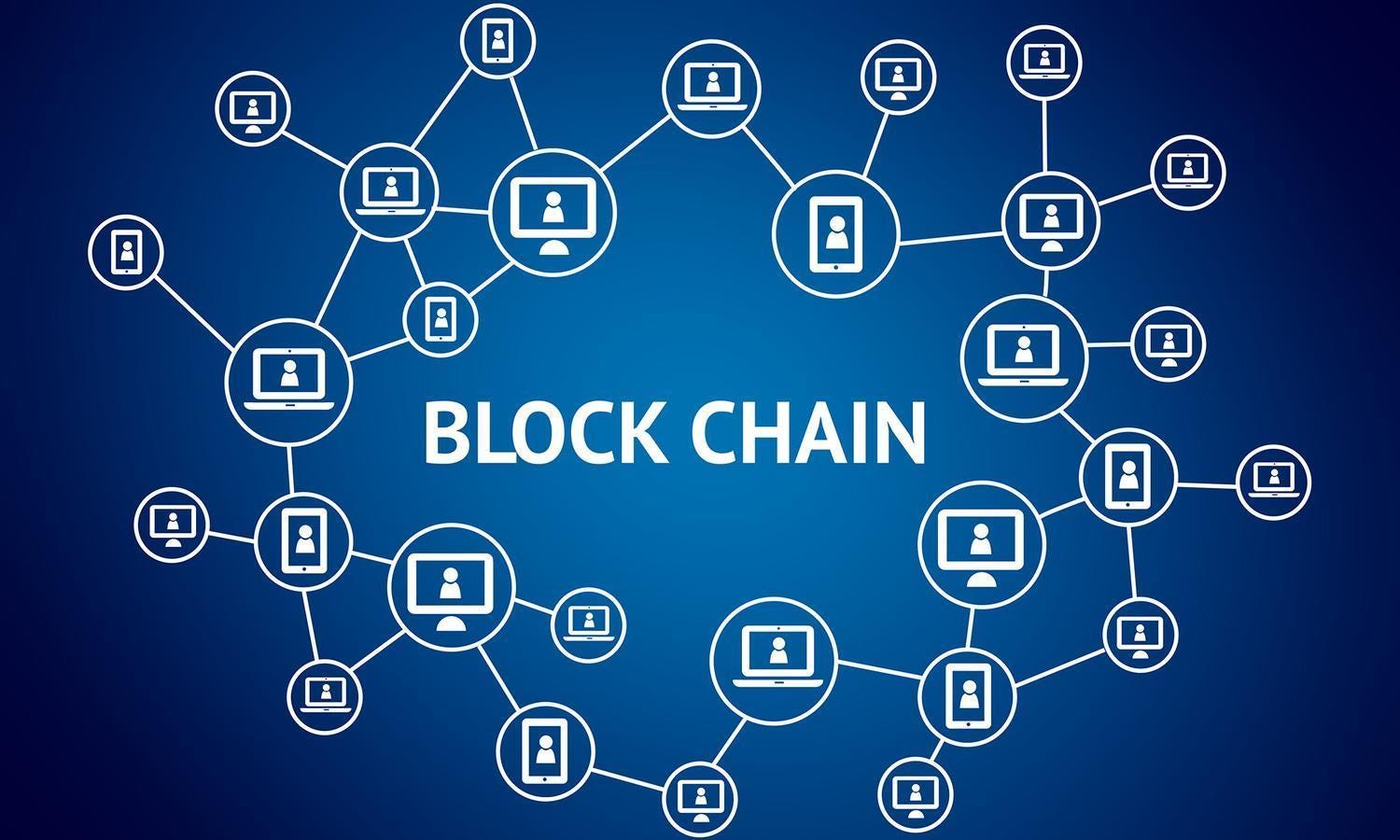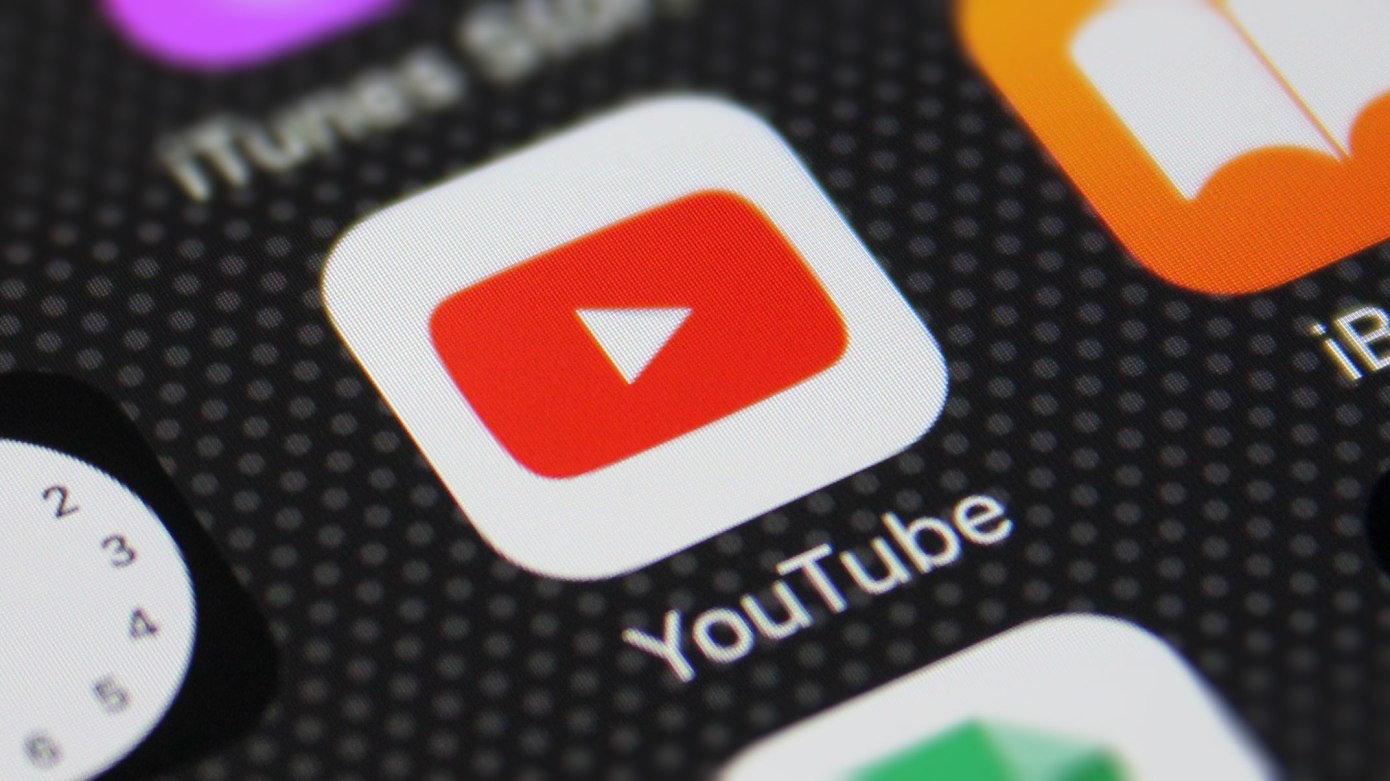Friday, March 10, 2023
Apple Producing In India Is A Big Deal
India needs a huge manufactuting base to create the large number of jobs it needs for its huge young population. The intractable labor and land laws mean most Indians end up in what gets called the "informal sector." There is a lot of entrepreneurship going on in that informal sector. People do so much with so little. It is heartwarming to see many of those street vendors take digital payments seamlessly.
Google getting an Indian CEO was a big symbolic step. Microsoft getting an Indian CEO was a big symbolic step. That CEO taking Microsoft from 200 billion to over a trillion was big. The recent ChatGPT move on the part of Satya Nadella has been huge and symbolic. And now this move by Apple adds to that momentum.
The two biggest democracies are attemtpting sync.
Apple begins making the iPhone 14 in India, marking a big shift in its manufacturing strategy
Rewriting the Rules of Audience Targeting The way people and tools are handling personal data is fundamentally out of sync with the new privacy-focused world. .......... what if we could personalise advertising without systematically collecting and exposing personal data? ....... The ad industry is fast approaching a crisis point. Cookies are disappearing, mobile IDs are vanishing, and consent rates are falling. This is an existential threat, not just to internet advertising but to the internet in general. If advertising fails, then business models supporting the open internet will fail, professional journalism will struggle, and the internet as we know it will be swallowed up by the walled gardens. ........ the pervasive surveillance of our every move online can no longer continue. ....... a high-level understanding of what publishers needed, a good grasp of privacy rules, very good knowledge of technology and tons of ideas. The canvas they were using to draw the building blocks of what would then become ID Ward (now Anonymised) was truly blank. ......... They spent months absorbing information from all corners of the advertising world, learning the jargon, diving into the tech, figuring out which tools were compliant and which were marketing a lie. They found that regulatory compliance isn’t sexy enough to sell, that companies were happy to break the law if it meant hitting revenue targets, and that leadership was hard to find. In short, they learnt that the industry was, well, a bit of a mess. Convincing a huge, chaotic, fragmented industry that they had to radically change the way they treated data was always going to be difficult, but the need for change was greater than they originally thought and time was on their side. .......... a mission to decouple personalised advertising from personal data. ........ make digital advertising fit for the future and protect advertising business models that support a free, independent internet. There is a direct connection between brands’ ability to speak to consumers online, the ability of journalists to report facts to the public and our right to be informed from a plurality of sources without breaking the bank. ......... without all of the snooping and systematic privacy invasions that are currently rife in the advertising industry ........ By replacing people’s personal data with anonymous datasets across the entire digital advertising ecosystem .
Thursday, March 09, 2023
Very Private Network
Autocratic regimes can take offense at the flimsiest of things. But the lure to lurk is extreme among the citizenry. People want to know. People want to talk. People want to share information.
A very private network can be a nightmare to bureaucratic regimes. They can pretend to look the other way.
Until a tipping point is reached, and the people revolt.
Google One brings VPN to $1.99/month plan, adding dark web info monitoring The VPN is available on Android, iOS, Mac, and Windows in 22 countries: Austria, Australia, Belgium, Canada, Denmark, Finland, France, Germany, Iceland, Ireland, Italy, Japan, Mexico, Netherlands, Norway, South Korea, Spain, Sweden, Switzerland, Taiwan, United Kingdom, and United States. ....... Google will “scan the dark web for your personal info — like your name, address, email, phone number and Social Security Number.”
Google One's VPN will soon be available to all subscribers Members in the US will gain access to a dark web monitoring tool too. ....... Google One is expanding its security features. First, Google is making its virtual private network (VPN) available to all subscribers at no extra cost. A VPN for Google One members was first introduced in October 2020, but only for those on plans with at least 2TB of storage. The 2TB plan costs $10 per month or $100 per year, but you now won't need to pay that much to access Google's VPN. ........ the Basic $2 per month option, which gives you 100GB of storage across your Google account. The VPN will be available in 22 countries on Android, iOS, Windows and Mac devices. You'll be able to share it with up to five other people who are on your One plan. ........ The VPN will hide your internet activity from hackers and network operators. Google says. The company claims it will "never use the VPN connection to track, log, or sell your online activity." ...... can scan the dark web for your personal details to check if your information has been included in a data breach. ....... If Google finds your tracked information on the dark web, it'll notify you and offer some suggestions on how to protect yourself.
9: News Bulletin
Spotify is revamping its podcaster tools, including Anchor, and is partnering with Patreon
The New Bing and Edge – Progress from Our First Month
Apple to Shake Up International Sales Operations to Make India Its Own Region
Google One brings VPN to $1.99/month plan, adding dark web info monitoring
Chinese AI groups use cloud services to evade US chip export controls
Uber Is Considering Spinning Off Freight Logistics Division
New Low: Monthly Funding Dips Below $20B As Funds Continue Record Raises
Consensus raises $110M to inject automation into SaaS product demos
Microsoft, Google-Backed Group Wants to Boost AI Education in Low-Income Schools
Coinbase announces Wallet-as-a-Service product to simplify web3 onboarding
DuckDuckGo Releases Its Own ChatGPT-Powered Search Tool, DuckAssist
‘I beg you to give me a chance’ - A 90-year-old Hong Kong hawker pleaded with officers after they confiscated the cart she used to sell roasted chestnuts. pic.twitter.com/7pk4WLLi32
— South China Morning Post (@SCMPNews) March 9, 2023
Time to reach 100M users. Wow ChatGPT pic.twitter.com/Ta8TcR7Jah
— Mukund Mohan (@mukund) March 9, 2023
For those of you who have been misinformed by authority figures that communism is a decentralized system--it can't be. Everyone can't be raised to the same high level, so everyone has the be pounded down to the same low level. That requires centralized elites to do the pounding. https://t.co/PhHTnEEIXs
— Marc Andreessen (@pmarca) March 9, 2023
#Kyiv is shaken, but not broken after this night’s attack! Do russians really think they can break our spirit?? pic.twitter.com/zuPWHcyUhm
— Inna Sovsun (@InnaSovsun) March 9, 2023
Estonia’s PM, Kaja Kallas, secures election win with pro-Ukraine stance | Estonia | The Guardian https://t.co/qFqjFLiUOP
— Kaja Kallas (@kajakallas) March 9, 2023
79 years ago Soviet planes bombed Tallinn and destroyed almost a quarter of the city. We see Russia using the same terror tactics today in Ukraine.
— Kaja Kallas (@kajakallas) March 9, 2023
Must-read thread on the March bombings 👇 https://t.co/GfVnpih3Yy
In <2 minutes, hear why @randizuckerberg wants you to take 8 minutes to see if you qualify for ERC assistance.
— INNOVATION REFUNDS (@getrefunds) March 6, 2023
Report: Trump ‘Strongly’ Considering Kari Lake As VP Pick As His Poll Numbers Continue To Skyrockethttps://t.co/zGbGzsgAKj
— Dinesh D'Souza (@DineshDSouza) March 9, 2023
During today's massive Russian missile attack on #Ukraine, one of the missiles hit a private house in the #Lviv region. 4 civilians died. Terrorism continues. pic.twitter.com/SXQUCNQ2a5
— Inna Sovsun (@InnaSovsun) March 9, 2023
Haha what a tool
— Elon Musk (@elonmusk) March 9, 2023
Our boy survived 🐻 attack 😅 #Ethereum pic.twitter.com/Z9IgUvmMfh
— Casper (💙,🧡) 🦇🔊🍄💎🍊 (@casperdefi) March 9, 2023
Monday, February 06, 2023
Big Tech And AI
Amazon’s Trainium chips, custom-designed processors that rival Google’s Tensor Processing Unit.
Last 3 months were extremely tough, as had to save Twitter from bankruptcy, while fulfilling essential Tesla & SpaceX duties. Wouldn’t wish that pain on anyone.
— Elon Musk (@elonmusk) February 5, 2023
Twitter still has challenges, but is now trending to breakeven if we keep at it. Public support is much appreciated!
Wednesday, July 29, 2020
Top Tech CEOs Go To Washington
I believe the anti-trust angst is valid. The big tech companies do seem to be stifling competition with their sheer size. The Google argument that their competition is just one click away belies the fact that search is a hugely capital intensive effort. It is more expensive to build a search engine than it is to build a Boeing jet plane. That huge cost is a moat around the Google castle. The same is true for the other big tech companies.

The leaders of the four Big Tech companies faced US lawmakers for the first time together on Wednesday in a hearing in which they were accused of harming not only competitors, but also consumers. Here's how it went: https://t.co/pdmassrDlk
— Financial Times (@FinancialTimes) July 29, 2020
Top Tech CEOs Go To Washington https://t.co/WIhFB0AcYc @Apple @Google @Facebook @amazon @JeffBezos @sundarpichai @AndrewYang @scottsantens #UniversalBasicIncome #UBI
— Paramendra Kumar Bhagat (@paramendra) July 29, 2020
Saturday, December 28, 2019
Baidu Beats
Earlier this month, a Chinese tech giant quietly dethroned Microsoft and Google in an ongoing competition in AI. The company was Baidu, China’s closest equivalent to Google, and the competition was the General Language Understanding Evaluation, otherwise known as GLUE.
Monday, May 20, 2019
Monday, May 13, 2019
Larry Page
Inspiring Google Story - Larry Page https://t.co/Zk6y2dOGEF via @YouTube
— Paramendra Kumar Bhagat (@paramendra) May 14, 2019
Where's Google going next? | Larry Page https://t.co/xjUDB7UTAD via @YouTube
— Paramendra Kumar Bhagat (@paramendra) May 14, 2019
Wednesday, January 02, 2019
Google Walkout Organizers: Put Your Money Where Your Mouth Is
This is not about technology. This is about group dynamics. This is about deliberately creating such an environment. It won't just happen. And the best time to make that move in a corporation is when it is being birthed. Much of the corporate culture gets decided pretty early. You are talking round one. You are talking pre-launch.
@GoogleWalkout Organizers @clairewaves @tanuja822 @mer__edith @sparker2 @EricaAmerica @amrtgaber Put Your Money Where Your Mouth Is https://t.co/1pMRoigC20 #googlewalkout #genderparity
— Paramendra Kumar Bhagat (@paramendra) January 3, 2019
Thursday, November 22, 2018
In Defence Of Facebook
Facebook is not the next Facebook, and Google is not the next Google, although some of Google's so-called moonshot projects are quite impressive, and in the pipeline.
Today I make free video calls to my parents in Nepal, thanks to Facebook Messenger, although it is true there are others like it. When I showed up for college in Kentucky, and the Internet was the new kid on the block, I had to pay something like two dollars per minute to call my parents. The college phone service was a monopoly. VOIP was unheard of. So when a few years later I came across 20 cents per minute deals, it felt like rocket science to me. Also, at that work study college, you were legitimately paid way below minimum wage. Which meant a week's wages could easily be spent on one conversation. :)
In my home village in Nepal, one of my failed initiatives was to launch a library. It did not fail. We did collect a few books. I donated most of it. But it did not take off as envisioned. Well, in that village today you can get a phone with a data plan. And, boom, there is a library called Google.
The tech giants are subject to public criticism, sure, why not. But let's maintain perspective.
The Big Four -- Apple, Amazon, Google, Facebook --- have collected a lot of data on each of us. True. But what would be the best next step? I think data portability. The data around each person is a personal oil well. It will pay for Universal Basic Income.
FACEBOOK BOARD DEFENDS HOW ZUCKERBERG, SANDBERG HANDLED CRISIS
Monday, November 12, 2018
Technology Is But Tool
Sundar Pichai of Google: ‘Technology Doesn’t Solve Humanity’s Problems’ https://t.co/RRfITmw9aw
— Paramendra Kumar Bhagat (@paramendra) November 12, 2018
When I was back at I.I.T., I had access to the computer so rarely — maybe I’d been on it three or four times. To come and just have these labs in which you had access to computers and you could program, it was a big deal to me. I was so wrapped up in that, that to some extent I didn’t understand there was a much bigger shift happening with the internet.
There is nothing inherent that says Silicon Valley will always be the most innovative place in the world. There is no God-given right to be that way. But I feel confident that right now, as we speak, there are quietly people in the Valley working on some stuff which we will later look back on in 10 years and feel was very profound. We feel we’re on the cusp of technologies, just like the internet before.
Technology doesn’t solve humanity’s problems. It was always naïve to think so. Technology is an enabler, but humanity has to deal with humanity’s problems.
Technology is but tool. The tool can be used either way.
Thursday, March 22, 2018
Could IBM Have Bought Microsoft?
Brave is a web browser that competes with Google’s Chrome. Instead of running targeted ads, Brave uses blockchain technology to pay websites when people spend time there. BitClave lets people perform searches online, and get rewarded for seeing ads. Another project, Presearch, is also using blockchain to try to compete with Google’s search engine
A Small Sales Tax Makes Sense
Wednesday, March 21, 2018
YouTube's Long Road To Monetization
Facebook Is Facing A Backlash
Here is Zuck's latest missive. He is on the defensive.
Employees have begun to worry that the company won’t be able to achieve its biggest goals if users decide that Facebook isn’t trustworthy enough to hold their data. At the meeting on Tuesday, the mood was especially grim. One employee told a Bloomberg Businessweek reporter that the only time he’d felt as uncomfortable at work, or as responsible for the world’s problems, was the day Donald Trump won the presidency.
Wednesday, March 09, 2016
Tech News (1)
Why Prospecting Asteroids for Precious Resources Is Now Possible [Video]
Most of the raw materials we value on Earth exist in much larger quantities in space. ..... “The first trillionaire in the world is going to be the person who first mines asteroids.”Drones Have Reached a Tipping Point—Here’s What Happens Next
Over the past few years, drones have moved from the "government phase" to the "consumer phase" into the "commercial phase." ........ Drones are demonetizing rapidly. Ten years ago, drones were million-dollar military/industrial things. Today they are on the shelves of Walmart. ...... "They started at $1,500 and now they're at $500 and they're soon going to $50, with even better technology onboard. The price decline in the industry is staggering." ..... "You will basically see supercomputer performance in toy level devices, just as we're already seeing with smartphones." ..... The next big breakthrough in drone research will be "sense-and-avoid." ....Right now, drones are either manually piloted or GPS piloted, but as we integrate them into our urban fabric, they'll need true autonomy...... "Drones will need to have eyes. Sensors like radar, LiDAR, stereo vision, sonar, and they'll need to use this to autonomously avoid obstacles and fly. It's environmental awareness and it is necessary to safely navigate worlds they've never explored." ...... The way we're going to digitize the planet is by putting sensors out there on drones ..... Satellites are going to be complementary, covering big areas but at lower resolution. ..... "Today the FCC doesn't have to regulate or give you a license for Wi-Fi because it's low power and self-de-conflicting — it's not a threat to anyone," says Anderson......"In the future, as drones become small enough, with low kinetic energy, and smart enough, I believe the FAA will regulate them like Wi-Fi. We want the FAA to create kind of an 'open spectrum' sandbox to allow for huge amounts of innovation."Eye on the Cure: Can Algae Genes Restore Vision in First Optogenetics Human Trial?
Given the power of optogenetics to fine-tune brain circuits, rumors of its potential use in humans as therapy have floated around since its inception...... In one previous study, after optogenetics treatment, previously blind mice could swim out of a chamber in which the escape route was brightly lit. On average, they escaped as fast as mice with normal vision.This Remarkable Robot Hand Is Worthy of Luke Skywalker
most Star Wars tech is beyond us...... Artificial bones were 3D printed from a laser scan of a real skeleton hand; ligaments were fashioned from ultra-strong, lightweight strings; and laser-cut rubber sheets act as soft tissue for stability, flexibility, and torque. All this is controlled by an array of servos and cables. ...... Some of the hardest tasks to automate in factories require human-level dexterity (e.g., handling circuit boards to tightly packing boxes). ...... Xu says we're making progress printing bone structures with biocompatible materials, making biodegradable ligaments, growing muscles in petri dishes, and learning to regenerate peripheral nerves.Space and Technology: The Search for Extraterrestrial Life
there are an estimated 100 billion billion Earth-like planets in our universe. ...... we're finding evidence of liquid water all over the solar system, and the one thing we know about life on Earth is the need for water. ..... in our own solar system, organic compound-glazed comets drift everywhere ..... we should be inside a life-spawning factory of a universe. ..... our universe has 500 billion billion stars like our own, and orbiting those suns are another 100 billion billion Earth-like planets. That is 100 habitable planets for every grain of sand on Earth. That’s trillions of opportunities for some other planet to grow life. ...... there would be one million planets with life in the Milky Way Galaxy alone ..... if even just a handful of alien civilizations have advanced beyond our current level of technological progress, humanity should be waking up to a universe like the world of Star Trek.The Near Future of VR and AR: What You Need to Know
try to predict the future when AI, robotics, VR, synthetic biology, and computation are all doubling, morphing and recombining… You have a very exciting (read: unpredictable) future. ..... VR will ultimately impact everything from real estate to retail and healthcare and education. Business meetings, conferences and concerts will soon all be held in virtual environments. ...... Over the past two years, well over $5 billion has been invested in AR and VR by all of the major technology companies, from Google to Microsoft and Samsung to HTC....... we're now reaching a crossover point where hardware technology will let us scan rooms and the people in it, and convert those scans into 3D objects at a very low cost ..... "There will be a magical turning point where the pixel size in our displays will get so small that you can't see them." ...... "When we've developed displays with between 4K and 8K resolutions (roughly), there will be a moment when we can't tell the difference between reality and virtual/augmented reality (at least with our eyes)." ...... we'll be able to animate you at a distance, talking to somebody else with a perfect representation of your facial movements. Think of a film like Avatar and how they transferred the actors onto those characters in the movie. You're going to be able to do that live, in a meeting, where you're going to be that character and it's going to move and express itself emotionally like you do. ..... Why go to conferences, school, or travel for business if you can have richer, deeper experiences from the comfort of your living room? ...... "If you can buy your kid a $600 virtual reality headset, and they can study five times as fast as anybody else, and they don't have to be in a particular neighborhood or near a school to do it, they are just going to adopt these things. They are that much better." ...... In success, your Magic Leap headset will allow you to view a virtual TV anywhere, on any wall, or a mobile phone screen on the palm of your hand, or the air in front of you, then there is no need to carry around clunky glass devices in your pockets or hang TVs on your walls.Why Big Tech Companies Are Open-Sourcing Their AI Systems
Microsoft, Google, Facebook and Amazon have been making remarkable progress developing artificial intelligence systems. Recently they have released much of their work to the public for free use, exploration, adaptation and perhaps improvement. ..... “deep learning” — an approach that organizes layers of neural networks hierarchically to analyze very large data sets not just in search of simple statistics but also seeking to identify rich and interesting abstract patterns. ......Will the End of Moore’s Law Halt Computing’s Exponential Rise?even experts do not understand when or how AI might become powerful enough to cause harm, damage or injury.
....... AI systems involve large — often very very large — amounts of code, so much that it stretches the ability of any single individual to understand in both breadth and depth. Scrutiny, troubleshooting and bug-fixing are especially important in AI, where we are not designing tools to do a specific job (e.g., build a car), but to learn, adapt and make decisions in our stead. The stakes are larger both for the positive and potentially negative outcomes. ........ Over the long run, Google and Facebook are not really in the business of selling ads, and Amazon is not in the business of selling merchandise. No, these technology companies are powered by your eyeballs (and data). Their currency is users. Google, for example, gives away email and search for free to draw users to its products; it needs to innovate quickly, producing more and better products to ensure you stay with the company. ...... AI is central because it, by design, learns and adapts, and even makes decisions. AI is more than a product: it is a product generator. In the near future, AI will not be relegated to serving up images or consumer products, but will be used to identify and capitalize on new opportunities by innovating new products.
Since 1991, the semiconductor industry has regularly produced a technology roadmap to coordinate their efforts and spot problems early. ...... Because the chief outcome of Moore’s Law is more powerful computers at lower cost, Kurzweil tracked computational speed per $1,000 over time. This measure accounts for all the “levels of ‘cleverness’” baked into every chip—such as different industrial processes, materials, and designs—and allows us to compare other computing technologies from history. The result is surprising........ Moore’s Law is the fifth computing paradigm. The first four include computers using electromechanical, relay, vacuum tube, and discrete transistor computing elements. ...... “When Moore’s Law reaches the end of its S-curve, now expected before 2020, the exponential growth will continue withDon’t Be Alarmed: AI Won’t Leave Half the World Unemployedthree-dimensional molecular computing
, which will constitute the sixth paradigm.” –Ray Kurzweil, The Singularity Is Near .......... Artificial intelligence, automation, robotics, virtual reality, unraveling the human genome—these are a few world-shaking advances computing enables. ...... As a society, if we just believed that single trajectory of Moore’s, and none other, we would have educated differently, invested differently, prepared more wisely to grasp the amazing powers it would sprout.
we can pretty much automate the job of an airline pilot today. Indeed, most of the time, a computer is flying your plane. But society is likely to continue to demand the reassurance of having a pilot on board even if they are just reading their iPad most of the time. ....... We also need to consider all the new jobs that technology will create. For example, we don’t employ many printers setting type any more. But we do employ many more people in the digital equivalent, making web pages. ..... the Oxford report gives a 98% chance of umpiring or refereeing to be automated. But we are likely to have just as many if not more umpires and referees in the future, even if they use technologies to do their job better. ..... In the US, the average working week has declined from around 60 hours to just 33. Other developed countries are even lower. Germans only work 26 hours per week. .......... Society would break down well before we get to 50% unemployment.Where Artificial Intelligence Is Now and What’s Just Around the Corner
AIs will begin to sense and use all five senses. ...... We'll see revolutions in how we manage climate change, redesign and democratize education, make scientific discoveries, leverage energy resources, and develop solutions to difficult problems. ......... AI is being used to match clinical trials with patients, drive robotic surgeons, read radiological findings and analyze genomic sequences. ..... Ultimately, during the AI revolution taking place in the next three years, AIs will be integrated into everything around us, combining sensors and networks and making all systems "smart." ..... AIs will push forward the ideas of transparency, of seamless interaction with devices and information, making everything personalized and easy to use. We'll be able to harness that sensor data and put it into an actionable form, at the moment when we need to make a decision.In the Future, Ownerless Companies Will Live on the Blockchain
poised to transform global commerce ..... Blockchain has been called “the most disruptive thing I’ve seen in my career” ........ Fundamentally, banks, auditing firms, legal services, and security systems are designed to authenticate the transactions that ripple across our planet. .......China’s Curious Dream of Floating Nuclear Plants on the OceanLike the internet democratized the exchange of information, transforming entire industries in the process, the blockchain promises to democratize the exchange of value, a concept with staggering possibilities.
...... “in the same way that we don’t refer to the internet as ‘PayPal’, we should be clear that ‘Bitcoin’ does not mean blockchain. PayPal is just one service built on top of internet protocols—Bitcoin is similarly built on top of the blockchain.” ....... “while Bitcoin itself may not stand the test of time, we can be sure that the blockchain is not going anywhere.” ........... Technologically binding smart contracts would bypass the need for sprawling financial back offices and expensive legal systems requiring lawyers, judges, auditors, and insurance professionals. Imagine a scenario in which a land title could check an online registry and automatically send itself to a new owner, eliminating a need for expensive title insurance to verify the legitimacy of the transaction. ....... One might design an account that automatically donates to relief efforts in the case of any or certain natural disasters, thereby removing the need (or even the option) of a case-by-case donation decision. ...... Imagine that a portion of FEMA’s funds were programmed to check a Hurricane’s status, and in the case of a Category 5 storm that makes landfall—it could allocate money to the correct local offices. ...... At a basic level, corporations themselves are fueled by contracts. We may live to see a new era of business and commerce built upon a more automated legal framework. Legal scholars and computer scientists have pointed out that an ecosystem of self-enforcing contracts would give rise to what are calleddistributed autonomous organizations (DAOs)
. ....... Imagine in the future —summoning a taxi that not only has no driver, but that belongs to a computer network, not to a human being. ...... a world where a network-owned drone service might power its units from network-owned charging stations. Supply chains built on top of such a system might further reduce the costs of delivering goods anywhere in the world. ....... The blockchain may then deliver the software smarts to eat away at parts of the economy we hadn’t considered ..... human society after the proliferation of the blockchain will be as unfamiliar to us as anything we’ve experienced.
a floating, ship-based nuclear power plant. ...... The plants would be situated between 8 and 12 miles from the coast at a depth of at least 100 meters. Power cables would run to switchyard facilities situated on land......Being placed so far from land would help protect the plants against earthquakes and tsunami waves, which are relatively small so far out...... the country will build at least 100 new nuclear power reactors in the coming ten years. ..... the country will use nuclear power to help reduce its current heavy reliance on coal, and in doing so, dramatically lower emissions of CO2 and air pollutants, which have reached health-threatening levels in many areas.Goodyear’s Awesome New Spherical Tire Design For Autonomous CarsChina will invest more than a trillion dollars in nuclear energy over the coming years.
In time, it’s hoping to recuperate some of that by becoming a leading global exporter of nuclear technology. ...... ocean-based reactors would be more susceptible to terrorist attacks. ..... The US Navy has logged more than 5,400 reactor years and traveled more than 130 million miles. They have sailed all the seven seas, including some of the most hostile environments, without any publicized accidents.
Car bodies of the future might be completely 3D printed. They may be completely autonomous — and now, they might have multi-directional spherical tires. .... Reinventing the wheel ..... Why bother attaching them to the car at all, when you can simply keep them in place with magnets? ..... the way a magnetic levitation train works. .... These trains use electrically charged magnets to lift train cars anywhere from a fraction of an inch to a few inches above the tracks. Once the train car is hovering above the tracks, electricity supplied through coils in the tracks creates magnetic fields that move the train. Since these trains float frictionlessly above the tracks, they can reach speeds of over 300 mph. ..... Inspired by brain coral and natural sponges, the 3D printed tire treads are designed to stiffen in dry conditions and soften when wet, like a sponge, to provide powerful control in all kinds of weather. ...... “What I'd really like to see is a provision for the wheels to be hollow and with some type of access hatch. That way you could fill one wheel with dirty laundry, some water and detergent, and by the time you arrive at your destination, boom, clean clothes! You could also insert peeled avocados, limes and some type of pestle in another wheel to create a delicious guacamole as you drive. The third wheel could be used for smoothies.”
Big Tech Companies Need To Pay Individuals Globally
Over the long run, Google and Facebook are not really in the business of selling ads, and Amazon is not in the business of selling merchandise. No, these technology companies are powered by your eyeballs (and data). Their currency is users. Google, for example, gives away email and search for free to draw users to its products; it needs to innovate quickly, producing more and better products to ensure you stay with the company.
It only makes sense. When a foreign company goes and drills for oil in Saudi Arabia, it pays the country. When Google drills you for data, should Google not pay? Data is the new oil. Tech companies are about to build super rich profiles on individuals. That is fine as long as privacy is respected. And they pay. Google's money might show up in your Gmail account. You should be able to conduct local commerce wherever you are.
This is not really that different from AdSense/AdWords. Google pays you when you display Google ads on your blog.
Just like with ISPs, governments can make companies owning the big pipes allow many small companies to become the last mile provider, similarly, many of these big tech companies are busy building many big pipes of all sorts. At some point it might make market sense to allow for competition in the final mile.
Also true for finance. If the big banks can just make sure your bank deposits are safe, do they also have to be the people providing the basic services? Can not small startups who don't own buildings simply plug in and start offering services?
Google owns Blogger, but Wordpress beats Google's Blogger in blogging platform innovation. Wordpress does the last mile really well.
Like Mao said (at least for a short period of time, very short), Let a thousand flowers bloom.
This is a policy challenge. It is for governments to make sure free competition is kept to the max. Sometimes that requires liberating the last mile to small players who might be more nimble, with their ears close to the ground.
I read somewhere Google is giving 25% ownership to the Sri Lankan government for taking its Project Loon insanity to the ground in that country for use of the airwaves. That sounded close to perfect to me, and might be even more meaningful to many of the African countries. Oil holes in the sky.
Thursday, February 04, 2016
Android Phones Should Machine Record All Talk
Would it not be great? To have a directly elected President Of The World? Black lives matter, and every vote counts.
Tuesday, January 26, 2016
Inequality
How Do You Explain This? Brain Power?
Big Sitting Cash
Paul Graham's Social Essay
The Bernie Fuss
Taxation And Political Innovation To Less Inequality
The Planet? Or The Republican Party?
I believe Bill Gates has a pretty good program. He is getting billionaires to voluntarily give away money and prevent revolution. That is a great way to protect members of one's class.
On Bernie, I am just trying to understand what the guy is up to.
Economic Inequality
Since the 1970s, economic inequality in the US has increased dramatically. And in particular, the rich have gotten a lot richer. ....... by definition, if a startup succeeds its founders become rich. Which means by helping startup founders I've been helping to increase economic inequality. If economic inequality is bad and should be decreased, I shouldn't be helping founders. No one should be. ........ How can economic inequality not be bad? Surely it's bad that some people are born practically locked into poverty, while at the other extreme fund managers exploit loopholes to cut their income taxes in half. ...... economic inequality is not just one thing. It consists of some things that are very bad, like kids with no chance of reaching their potential, and others that are good, like Larry Page and Sergey Brin starting the company you use to find things online. ........ if you actually want to fix the bad aspects of it—you have to tease apart the components. And yet the trend in nearly everything written about the subject is to do the opposite: to squash together all the aspects of economic inequality as if it were a single phenomenon. ....... critical aspects of inequality, like the role of technology in wealth creation ......What Paul Graham Is Missing About Inequality
the pie fallacy: that the rich get rich by taking money from the poor.
...... multiple ways people become poor, and multiple ways people become rich ....... Before Mark Zuckerberg started Facebook, his default expectation was that he'd end up working at Microsoft. The reason he and most other startup founders are richer than they would have been in the mid 20th century is not because of some right turn the country took during the Reagan administration, but becauseprogress in technology has made it much easier to start a new company that grows fast.
.......... there are a lot of people who get rich through rent-seeking of various forms, and a lot who get rich by playing games that though not crooked are zero-sum, there are alsoa significant number who get rich by creating wealth
......... variation in productivity is accelerating.The rate at which individuals can create wealth depends on the technology available to them, and that grows exponentially.
The other reason creating wealth is such a tenacious source of inequality is that it can expand to accommodate a lot of people. .......... as long as you leave open the option of getting rich by creating wealth, people who want to get rich will do that instead. ....... Most people who get rich tend to be fairly driven. ....... determination is the main factor in the success of a startup ...... a lot of the new startups would create new technology that further accelerated variation in productivity. ....... Variation in productivity is far from the only source of economic inequality, but it is the irreducible core of it, in the sense that you'll have that left when you eliminate all other sources. ....... Startups are almost entirely a product of this period. And even within the startup world, there has been a qualitative change in the last 10 years. Technology has decreased the cost of starting a startup so much that founders now have the upper hand over investors. Founders get less diluted, and it is now common for them to retain board control as well. ........The acceleration of productivity we see in Silicon Valley has been happening for thousands of years. If you look at the history of stone tools, technology was already accelerating in the Mesolithic.
....... The evolution of technology is one of the most powerful forces in history. ...... an exponential curve that has been operating for thousands of years, I'll bet on the curve. Ignoring any trend that has been operating for thousands of years is dangerous. But exponential growth especially tends to bite you. ....... And to get rich now you don't have to buy politicians the way railroad or oil magnates did. The great concentrations of wealth I see around me in Silicon Valley don't seem to be destroying democracy. ....... a good number are merely being sloppy by speaking of decreasing economic inequality when what they mean is decreasing poverty. ...... Closely related to poverty is lack of social mobility. I've seen this myself: you don't have to grow up rich or even upper middle class to get rich as a startup founder, butfew successful founders grew up desperately poor.
....... There is an enormous difference in wealth between the household Larry Page grew up in and that of a successful startup founder, but that didn't prevent him from joining their ranks. It's not economic inequality per se that's blocking social mobility, butsome specific combination of things that go wrong when kids grow up sufficiently poor.
........... let's attack poverty, and if necessary damage wealth in the process. That's much more likely to work than attacking wealth in the hope that you will thereby fix poverty ....... if there are people getting rich by tricking consumers or lobbying the government for anti-competitive regulations or tax loopholes, then let's stop them. Not because it's causing economic inequality, but because it's stealing
It is good that Paul is wrestling with the question of income inequality, as Silicon Valley as a whole should be. ..... We have to understand what’s wrong with the world as it is, because only then can we envision the world we want to create, and think about how to get there. ....... we need to take a closer look at how one of Silicon Valley’s most treasured tools for creating wealth for employees — the stock option — has played an unexpected role in increasing income inequality. ...... even Thomas Piketty argues that
increased productivity and better diffusion of knowledge create more wealth for society and are among the forces that reduce income inequality.
........ on average, one group of people is becoming significantly richer, while another is becoming significantly poorer ...... the growth of the financial industry is central to the inequality discussion. ..... Financial markets have been extracting a larger and larger slice of the entire economy. ...... Around the turn of the century, financial markets provided capital to business and consumers at a cost of about 2% of the total economy. By 2013, that cost was up to 9%! (By contrast, the entire internet sector is about 5% of GDP!) ...... the size of the financial sector has increased at the same time as the role it plays in financing innovation and productive investment has decreased! ......I think you have to ask yourself how much this “financialization of the economy” is also a major contributor to the Silicon Valley wealth that you celebrate in this piece.
........ Google increased US economic activity in 2014 by $131 billion dollars. That means that value created for other businesses in 2014 was more than double Google’s own $61 billion in annual 2014 revenue. (Note that the value creation number from Varian’s study is US only, while the revenue figure is worldwide.) Given that Larry and Sergey founded Google in 1998, you can count the cumulative economic impact in the trillions of dollars. And the consumer surplus provided by free access to vast amounts of online information has to be far larger. .......... As long as the startup creates more value for society than it takes out for itself, it can actually decrease inequality, rather than increasing it. ....... those services did indeed result in increased revenues for those 1.8 million Google business customers. As for the users of the Google search engine, we also participated in an exchange of real value, receiving free search services, navigation, office applications, and much more, in exchange for clicking on some of the advertisements that those paying Google customers placed via the service. ........Financial markets are very different than the market of goods and services
....... The price of a stock is fundamentally a bet on the future. ...... When a company fails to deliver value that lives up to that bet, but still cashes in through IPO or acquisition, the wealth that is gained by startup founders and early investors is taken from public market investors. This is a risk that both sides of the bet willingly take, and it has provided enormous fuel for innovation as it encourages innovators to take risks in hope of future rewards. But in over-excited markets, it’s too easy for many startups to aim to cash out with “dumb money” while the getting is good with no real plan for ever delivering real revenues or profits. ......... As it turns out, the value that Larry, Sergey, and other early insiders have realized from Google through financial markets roughly matches the share of Google’s profits they could have claimed as owners of a private company. But that isn’t always the case. ....... financial markets have increasingly gone from being a source of capital for companies to a kind of giant betting pool, in which winning and losing is much less correlated with underlying economic activity. ...... In an economy where financial instruments are increasingly unmoored from the real market of goods and services and profits derived from those services, it’s possible for many people to reap rewards that weren’t actually earned. I’m not just talking about bubble-inflated stock-based compensation that has made many people in Silicon Valley so rich, or the excesses of Wall Street banks which nearly wrecked the economy in 2008, but the entire structure of executive compensation. .........stock options, which have paid such a large role in Silicon Valley wealth, have been misused, and have become a key part of the problem of income inequality.
...... in 75% of VC-backed start-ups, the entrepreneur gets zero. If becoming rich in Graham’s world means making $100 million (pre-tax), then 0.4% of entrepreneurs make the grade. .......... It reached the destructive extreme when the CEOs of banks, whose liabilities are guaranteed by taxpayers, began getting most of their compensation in options. ..... “Starting in the 1970s and accelerating in the 1980s, most CEOs and other top executives began to receive the bulk of their compensation in stock options, rather than as ordinary income. And in 1993, a well-intentioned law pushed by President Clinton limited the ordinary income that could be paid to top management, with the unintended consequence that even more of the compensation moved to stock options. The intention was to align the interests of management with the interests of shareholders, but is often the case, those good intentions were derailed by poor implementation. ......... Congress allowed a huge loophole in the accounting treatment of stock options — unlike ordinary income paid to employees, value paid through options need not be charged against company earnings. It is thus a kind of “free money” for companies, invisibly paid for by dilution of public market shareholders (of whom a large percentage are pension funds and other institutional shareholders representing ordinary people) rather than out of the profits of the company. As a result, executive compensation soared, to the point thatin one outrageous 1999 case, the CEO of retailer Abercrombie and Fitch received $120 million in option pay (not charged to the P&L), while in the same year, the company had only $150 million in earnings
........... Meanwhile, there is an incentive to cut income for ordinary workers, because that still shows as an expense on the P&L. Cutting wages drives up net income and thus the price of the stock in which executives are increasingly paid. ....... there are strong incentives for financial maneuvers like stock buybacks, which too often replace productive re-investment in the underlying business ......the use of stock options and other financial instruments led to a widening gap between the pay of executives and ordinary workers. In the 1960s, CEO pay was 20x that of the average worker. Now, it is 300x that of the average worker. This is a major driver of inequality.
...... Silicon Valley companies are actually better than many other companies, because they offer options to virtually every employee, but even there, those options are overwhelmingly weighted towards top management, with each lower rank of workers typically receiving a full order of magnitude less in value. ....... In the case of companies like Walmart and Amazon, productivity gains may also be given to consumers in the form of lower prices, as a way to expand the market share of a business. Or in the case of Google and Facebook, given to consumers as free services, paid for by advertisers. ......we have forgotten the hard fought lessons of the 20th century, that workers are also customers, and that unless they receive a fair share of the proceeds, they will one day be unable to afford our products.
...... when we saw that many members of society were no longer able to afford the products our companies have on offer, we encouraged workers to borrow money at high credit card interest rates so that they could maintain the illusion of middle class wages, and even encouraged them to take on student debt so that they could retrain themselves for the jobs of the future that we were busy stripping away. And of course, when the government stepped in with a safety net to support those who could no longer afford even the bare necessities of life, businesses gratefully accepted the economic boost from their spending of government benefits, but claimed that those we no longer paid enough to live without that assistance were freeloaders. ........ the way that we allocate profits from increased productivity to top managers versus ordinary workers, or the way that our tax system favors capital gains over income earned by labor ..... You have to ask yourself, though, whether a Silicon Valley startup is more like the woodworker who made five chairs, or more like the high frequency trader. It’s clear that many startups are like the woodworker, but in bubble times like these, there are a lot of startups that are more like the high frequency trader. ...... we’ve figured out how to have machines make many of the products that we used to pay people to make. And we’ve figured out how get people on the other side of the world, in countries that are much poorer than ours, to accept much lower wages and much worse working conditions as a way to increase the profits of our businesses. ....... Doing this has actually increased the wealth of people in those other countries — income inequality has decreased worldwide, with fewer and fewer people living in abject poverty, and hundreds of millions of others beginning to enter the middle class. But in formerly rich countries, many people who used to be paid well for their work now have to compete for lower-paid jobs, while those who already own meaningful capital take a larger and larger share of the pie. .......... All it takes to increase income inequality is for there to be more companies practicing the “degenerate case” than practicing the virtuous kind of capitalism that creates more value than it extracts. ........ If you couldn’t successfully analyze a situation with statistics, half of the internet startups you celebrate wouldn’t exist! ..... If you’d spent as much time talking to people who work at today’s low-wage jobs, you might have a very different perspective. ....... you underestimate the increased role of financial markets in how entrepreneurs are compensated, so that even many companies without real profits can reap enormous stock gains. You have to realize that Zuck, like Larry and Sergey, is an outlier, in that he created an extraordinarily profitable business. .......When a startup doesn’t have an underlying business model that will eventually produce real revenues and profits, and the only way for its founders to get rich is to sell to another company or to investors, you have to ask yourself whether that startup is really just a financial instrument, not that dissimilar to the CDOs of the 2008 financial crisis — a way of extracting value from the economy without actually creating it.
...... I call today’s economy “The WTF Economy.” It fills us with wonder, and it fills us with dismay. I’ve been working hard to understand what we need to change if we want to create a Next Economy that will preserve the wonders of innovation but also addresses the dark futures that we face unless we put people first. Let’s work together to harness the power of technology to decrease income inequality rather than increase it!
WTF?
the entire internet economy, which does not all belong to startups, is 3.4% of GDP
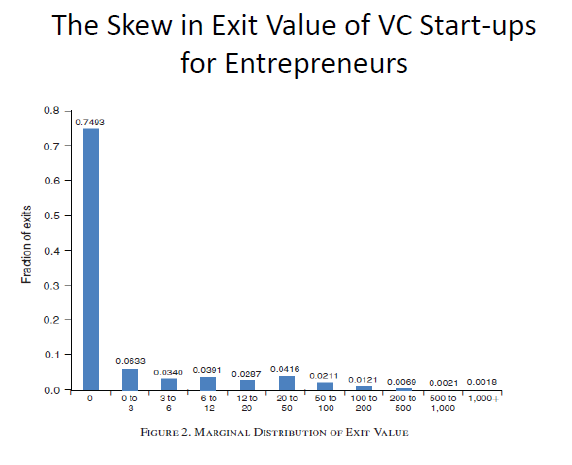
Paul Graham “Clarifies” Again.
The median US household net worth is about $80k. ...... It’s common for the stock of a successful startup founder to be worth a hundred times as much, and not unheard of for it to be worth ten thousand times as much. ..................... To continue with my global warming analogy, no one gives a damn about one or two fires. Or even a thousand. They care about the planet’s temperature. ...... the aggregate measurement of “economic inequality” is no more influenced by wealth of any individual tech millionaire — even Bill Gates — than global warming is by one really, really hot fire somewhere. ..... a fire is a lot hotter than the much more ample air around it — not that that thing influences the planet’s temperature as a whole. ...... The successful ones do well. It is completely, radically, insanely uncommon for any tech founder’s stock to be worth a hundred times as much. The successful ones are, yes, successful. Most of them are not. Just like every other job. ...... Maybe you think Tech is good, and therefore tech millionaires are A-OK in your book (I would agree with you). ...... On the Forbes 400 richest people in the US list — the very one Graham mentioned: thirteen percent of the richest people (53) in America made their money in tech. The share of people who made their money via investments (aka hedge funds and the like), by comparison, is 24%. .......Tech Startup Equity Distribution
those tech billionaires on the Forbes 400 control $515 billion between them. The top 1% of the United States controls just shy of twenty eight trillion dollars.
The Forbes 400 as a whole controls around $4 trillion. ....... There aren’t enough tech millionaires out there to make much of a dent in economic inequality. .......How many millionaires has tech made? A million? Not even close. How many millionaires are in the United States? More than six million (and I am using the conservative definition, which excludes primary residences).
....... You know how many millionaires there are in California? 777,000. But most of these aren’t tech millionaires. Los Angeles, being the 14th largest population of millionaires in the world, has 126,000 of them. San Francisco doesn’t even make the list. ........The startup world could triple the number of millionaires it has made, and it would still be a drop in the bucket when it comes to economic inequality.
....... Microsoft made 12,000 millionaires. Google made 1,000. Facebook made 1,000 (to be fair,they’ve probably made one or two thousand more since their stock is killing it). Twitter made 1,600. Atlassian has made 100. I worked at a unicorn. It sold for a billion plus. I’d be shocked if it made more than 20. ........ Wonder where all that money went. Oh right. The VCs. And the 2 or 3 co-founders. ......Every single person on that Forbes 400 list from tech was a founder, co-founder or a VC. Not a single early employee among them.
...... San Francisco isn’t in the top 20 cities on earth for millionaires. Or multi-millionaires. But you know what list it is on? Billionaires. San Francisco on its own, ignoring the rest of Silicon Valley, ranks #16 in the world for billionaires. ....... Tech startups are great, sure. But they have nothing to do with economic inequality. The funding structures of startups do. ............. The more you think about it, the more you realize that Paul Graham is trying to claim that startups are essential to our society (agreed) and the only way people will build startups is if we do it exactly as we do right now, and the top three people in a startup can get super super rich, like global elite rich, and everyone else in the company doesn’t. ....... It seems to me that people will still start just as many startups with less economic inequality in the world, just like they have in the past. ....... how upset the 99% of the Bay area would be if tech IPOs still made the number of millionaires as they did with Microsoft.
We need to, or voters and politicians need to, think of political innovation, and policy innovation the same way we think of technological innovation. What was 1776? Was that like launching Windows? What was it? Why did innovation stop at launching Windows? And who is responsible?
My Five Trillion Dollar Plan To Reduce Income Equality
- Put one trillion into solar.
- Put one trillion into physical infrastructure: roads, bridges, drones for broadband, schools, hospitals.
- Put one trillion into microfinance for people who can not offer collateral. Collateral is stupid.
- Put another trillion into solar.
- Give one trillion to a world government. On 1% interest. Do the Bond thing. Money is growing. Why are you complaining?
Thursday, January 21, 2016
Big Sitting Cash
US firms have $1.9 trillion in cash they're not investing. Why? A fascinating essay on this: https://t.co/zA2Za0zYSv pic.twitter.com/1uRU4NamjH— Clive Thompson (@pomeranian99) January 21, 2016Why Are Corporations Hoarding Trillions?
Collectively, American businesses currently have $1.9 trillion in cash, just sitting around. Not only is this state of affairs unparalleled in economic history, but we don’t even have much data to compare it with, because corporations have traditionally been borrowers, not savers. ....... it is probably earning only about 2 percent interest by parking that money in United States Treasury bonds. These companies would be better off investing in anything — a product, a service, a corporate acquisition — that would make them more than 2 cents of profit on the dollar, a razor-thin margin by corporate standards. And yet they choose to keep the cash. ........ if you buy a share in Alphabet, which has sold for roughly $700 lately, you are effectively buying ownership of more than $100 in cash. ......
General Motors is perhaps the most extreme: It now holds nearly half its value in cash. Apple holds more than a third.
....... If the companies spent their savings, rather than hoarding them, the economy would instantly grow, and we would most likely see more jobs with better pay. ....... the 1990s were a period of low unemployment and high growth. Remarkably, the United States government was able to tax all that productive corporate behavior so much that it came close to paying off all its debts for the first time in 160 years........holding on to cash and carefully shifting it among subsidiaries, especially foreign ones, is a great tool to shrink your tax bill.
....... Google buys about one company a week, on average ..... Companies like Google and GM are holding on to far more cash — many times more — than could possibly be explained by emergency funds and tax efficiencies and M.&A. intimidation put together. ...... finance economists agree that there is a puzzle here ..... a large cash hoard is a sign of an unhealthy company. Maybe its whole industry is doing so poorly that there is nothing worth investing in ....... Corporations, it seems, may have amassed at least a good chunk of that $1.9 trillion in mysterious savings because the stock market is rewarding them for it. ........ both the executives and the investors in these industries believe that something big is coming, but — this is crucial — they’re not sure what it will be. .....Their hoarding of it hints that they think the next transformative innovation could be just around the corner.
These trillions should go into Clean Energy and Global South infrastructure. There will be solid if not sexy returns. A 10% annual growth beats zero. A trillion going into clean energy makes global warming talk mostly history.
Related articles
 Hundreds of large firms paying no tax in Australia
Hundreds of large firms paying no tax in Australia Auto Artificial Intelligence $75 Billion Market
Auto Artificial Intelligence $75 Billion Market EU Regulators Continue Investigation Into Apple's Tax Affairs
EU Regulators Continue Investigation Into Apple's Tax Affairs IDC: Apple Watch to Dominate Smartwatch Market Through 2019
IDC: Apple Watch to Dominate Smartwatch Market Through 2019 Apple Watch's dominance isn't slowing down any time soon
Apple Watch's dominance isn't slowing down any time soon IDC expects Apple Watch to dominate wearables market through 2019
IDC expects Apple Watch to dominate wearables market through 2019
@pomeranian99 @pmarca This is like allowing the ocean currents to stop the churn. Bad for the planet.
— Paramendra Bhagat (@paramendra) January 22, 2016
